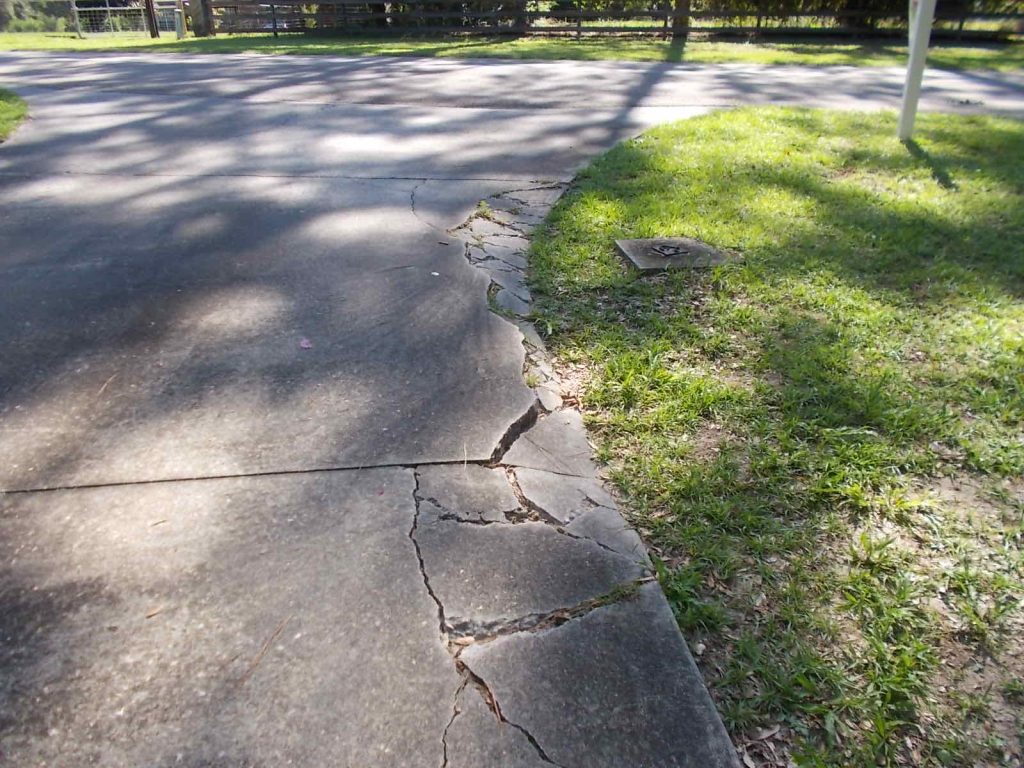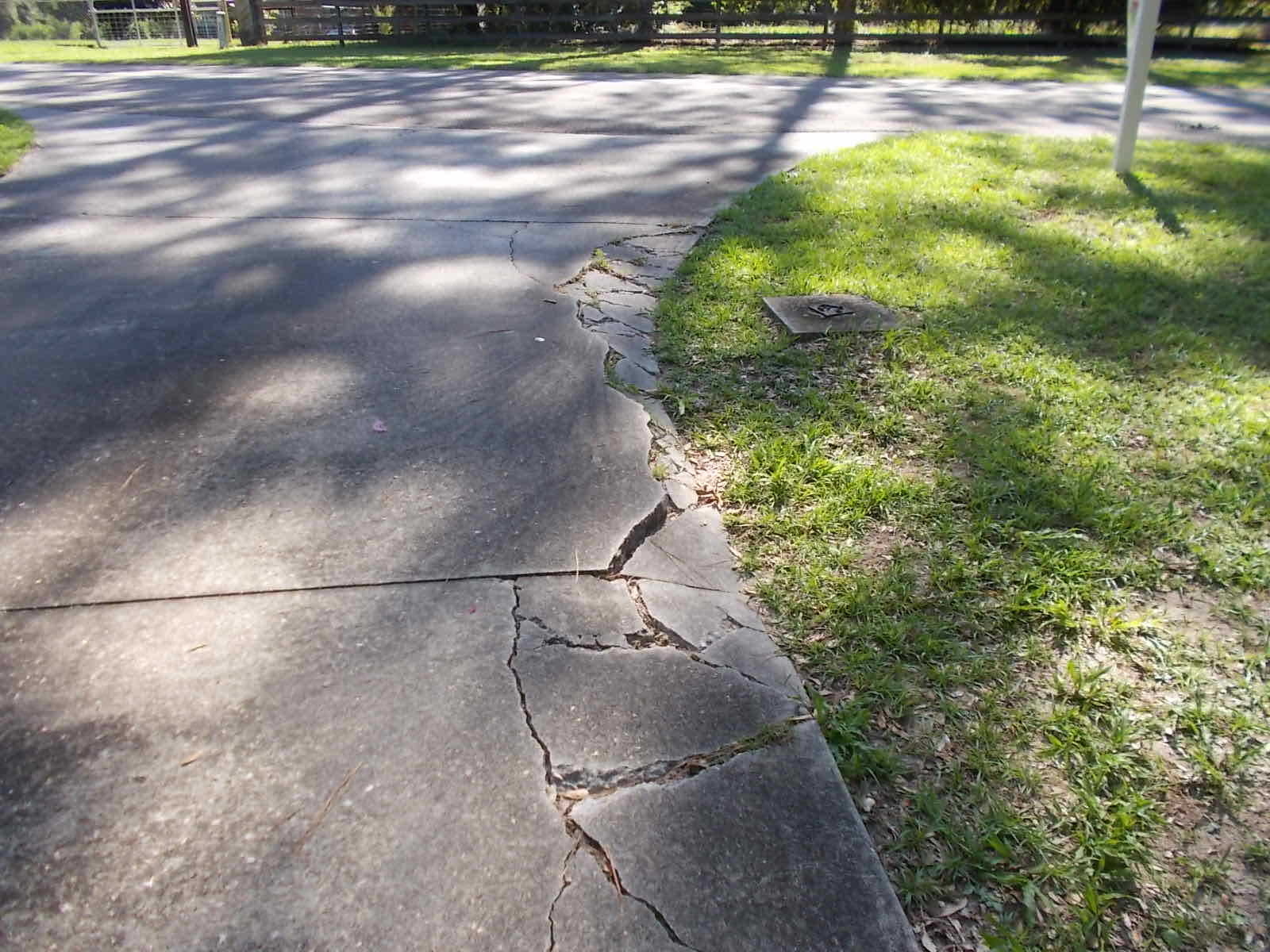Imagine this…
During the driveways and walkways inspection, Kim, a homeowner, expressed concern about the large cracks that had appeared in her concrete driveway. She mentioned that the cracks seemed to be getting wider over time and wanted to know if it posed any structural risks to her property. As the inspector carefully examined the cracks and surrounding area, they assured Kim that while the cracks were noticeable, they didn’t indicate any immediate danger. However, they recommended filling and sealing the cracks promptly to prevent water from seeping in and exacerbating the issue. Kim appreciated the advice and decided to schedule the necessary repairs to maintain the integrity and appearance of her driveway.
Protect your property and ensure its longevity by addressing driveway cracks promptly with proper sealing and maintenance, just like Kim did after receiving expert advice during her inspection.
What is Driveways and Walkways Inspection?
Driveways and walkways play a crucial role in the overall safety and accessibility of a property. They are subjected to daily wear and tear due to foot and vehicular traffic, exposure to weather elements, and other environmental factors. Regular inspections of driveways and walkways are essential to identify potential hazards, maintenance needs, and ensure compliance with safety standards.

Conducting driveways and walkways inspection
Conducting a driveway and walkway inspection is essential for ensuring the safety and functionality of these areas around a property. Whether you’re a homeowner, property manager, or inspector, here are some steps and things to consider during the inspection:
- Check for Cracks and Damage: Inspect the driveway and walkway for any visible cracks, holes, or signs of damage. Pay attention to the severity and location of the cracks, as they can indicate potential issues with the foundation or settling.
- Look for Uneven Surfaces: Walk along the driveway and walkway to identify any uneven surfaces or trip hazards. These could result from heaving, settling, or tree roots pushing up the concrete or pavement.
- Check for Proper Drainage: Ensure that the driveway and walkway are designed to allow water to flow away from the property. Poor drainage can lead to water pooling, which may damage the surface and contribute to erosion.
- Inspect Edges and Borders: Examine the edges of the driveway and walkway to see if there is any crumbling or deterioration. Properly defined and maintained edges can prevent the edges from chipping or breaking.
- Look for Stains and Discoloration: Identify any oil stains, chemical spills, or other discoloration on the surface. Stains can not only be unsightly but also indicate potential issues with sealants or coatings.
- Evaluate Joint Sealing: If the driveway or walkway has expansion joints or control joints, check if they are properly sealed. Well-maintained joints prevent weed growth and water infiltration, which can damage the surface over time.
- Assess the Condition of the Surface: Determine whether the driveway and walkway surfaces are smooth and even or if they are deteriorating. Surface issues can impact traction and may require resurfacing or repair.
- Inspect Surrounding Landscape: Take note of any trees, shrubs, or vegetation near the driveway and walkway. Overgrown roots or branches may cause damage to the surface.
- Evaluate Lighting: If there are lights along the driveway and walkway, check if they are functioning correctly. Adequate lighting ensures safety during nighttime use.
- Consider Accessibility: Assess whether the driveway and walkway meet accessibility standards, especially for individuals with mobility challenges. Ensure there are no significant obstacles or barriers along the path.
- Check for Ice and Snow Removal: If the inspection takes place during winter, verify that the driveway and walkway are adequately cleared of ice and snow to prevent slip and fall accidents.
- Note any Erosion or Settlement: Look for signs of erosion or settlement around the driveway and walkway, particularly if they are close to hills or slopes.
- Document Findings: Take photos and notes of any issues, concerns, or necessary repairs identified during the inspection. Proper documentation is crucial for future reference and maintenance planning.
- Recommend Repairs and Maintenance: Based on the inspection findings, make recommendations for repairs, maintenance, or improvements to ensure the driveway and walkway remain safe and functional.
Remember that regular inspections and timely maintenance can help extend the life of the driveway and walkway, prevent accidents, and save on costly repairs in the long run. If you’re unsure about any aspect of the inspection or encounter significant concerns, consider consulting a professional contractor or engineer for further evaluation.
Why do you need driveways and walkways inspection?

A driveways and walkways inspection are crucial for first-time property buyers for several reasons:
- Safety: Driveways and walkways need to be safe for both pedestrians and vehicles. A thorough inspection can identify potential hazards, such as uneven surfaces, cracks, or loose pavers, that could cause trips, falls, or damage to vehicles. Addressing these issues can help prevent accidents and liability concerns.
- Curb appeal and aesthetics: Driveways and walkways contribute to the overall appearance and curb appeal of a property. An inspection can ensure that they are in good condition, well- maintained, and visually appealing, which enhances the value and enjoyment of the home.
- Drainage and water management: Proper drainage is essential to prevent water from pooling on driveways and walkways, which can lead to slippery surfaces, damage, and even foundation issues. An inspection can assess the slope and drainage of these areas, ensuring that water flows away from the property and does not cause problems.
- Material quality and durability: A thorough inspection can help identify issues with the materials used in driveways and walkways, such as poor-quality concrete, asphalt, or pavers. Addressing these concerns can extend the life of these surfaces and reduce future maintenance and repair costs.
- Structural integrity: Driveways and walkways are integrated into the property’s landscape and need to be structurally sound. An inspection can identify any issues with the underlying base, subsurface, or other components that may compromise their stability and longevity.
- Maintenance and repair planning: A driveways and walkways inspection can help you identify areas that may require ongoing maintenance or future repairs. This information is essential for budgeting and planning to keep your property in good condition.
- Resale value: Well-maintained driveways and walkways are essential for maintaining the property’s resale value. Identifying and addressing any issues during the inspection can help protect your investment and ensure that your home retains its value over time.
- Building codes and regulations compliance: Driveways and walkways must comply with local building codes and regulations, particularly regarding dimensions, materials, and accessibility. An inspection can help ensure that these surfaces meet the necessary requirements, avoiding potential fines or issues when selling the property.
- Negotiation leverage: If the driveways and walkways inspection reveals any issues, you can use this information to negotiate a better price, request that the seller make necessary repairs before closing, or include contingencies in your offer to ensure these issues are addressed.
- Peace of mind: A thorough driveways and walkways inspection provides peace of mind, knowing that you’ve assessed these essential components of your property and addressed any concerns. This confidence will allow you to enjoy your new home without worrying about potential driveway and walkway issues.
In summary, a driveways and walkways inspection is vital for first-time property buyers to make informed decisions, protect their investment, ensure the safety, aesthetics
Contact us to schedule your inspection and gain peace of mind!
Follow us!
For more details you may also follow our Facebook, Instagram, and YouTube!




